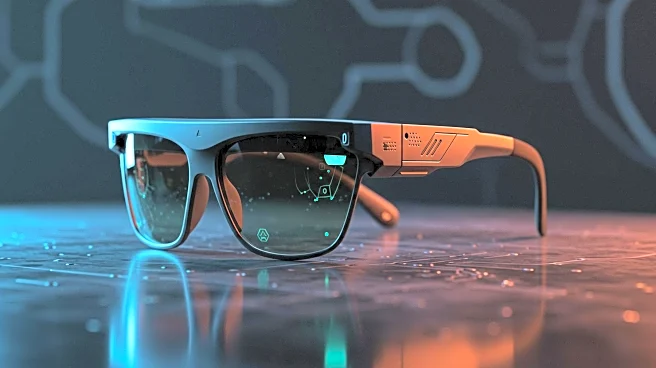What's Happening?
HTC has announced its entry into the AI-powered smart glasses market with the introduction of the Vive Eagle glasses. These glasses are equipped with built-in speakers, a 12MP ultrawide camera, and an AI voice assistant. The Vive Eagle glasses are currently available for purchase in Taiwan and are positioned as a competitor to Meta's Ray-Ban and Oakley smart glasses. Key features include AI-powered image translation, which allows users to translate visual information into 13 different languages, and functionalities such as recording reminders, asking for restaurant recommendations, and taking notes. The glasses weigh 49 grams and are priced at approximately $520 USD. They come with Zeiss sun lenses and are available in various frame colors including red, brown, gray, and black.
Why It's Important?
The introduction of the Vive Eagle glasses by HTC signifies the growing competition in the smart glasses market, which is currently dominated by major tech companies like Meta, Google, and Samsung. This development highlights the increasing consumer interest in wearable technology that integrates AI capabilities. The ability to translate images and provide real-time assistance through voice commands could enhance user experience and accessibility, potentially influencing the adoption of smart glasses in everyday life. As more companies enter this space, consumers may benefit from a wider range of options and innovations, driving further advancements in wearable technology.
What's Next?
While the Vive Eagle glasses are currently only available in Taiwan, there is potential for HTC to expand their availability to North America and Europe. If HTC decides to enter these markets, it could intensify competition with existing players like Meta, potentially leading to price adjustments and feature enhancements across the industry. The response from consumers and competitors will likely influence HTC's strategy and the future development of smart glasses technology.









